The Case For Esports - SULC launches new Innovation Lab for Esports Program

You could hear the smile Christopher Turner was wearing when he said, “to love each other and understand how to support each other is what we need culturally.” The Southern University Law Center’s Esports Coordinator wasn’t talking about the press tour between Jonathan Majors and Michael B Jordan, he was referring to the love and respect shown between Mahcoe Edwards and Noland Johnson.
Much like the Hollywood superstars, the two SU Esports players gush over each other whenever given the opportunity.
“I think he’s great. I respect what he does. I like how he moves,” remarked Johnson discussing Edwards.
“It has definitely been a pleasure to work with him,” said Edwards when talking about Johnson.
The pair are hard not to root for, especially knowing their bond was likely only made possible because of Southern University’s Esports team.
For Johnson, the on campus program was an escape from the isolation associated with gaming. It allowed him to form relationships and bonds with people from different walks of life that he otherwise wouldn’t have met.
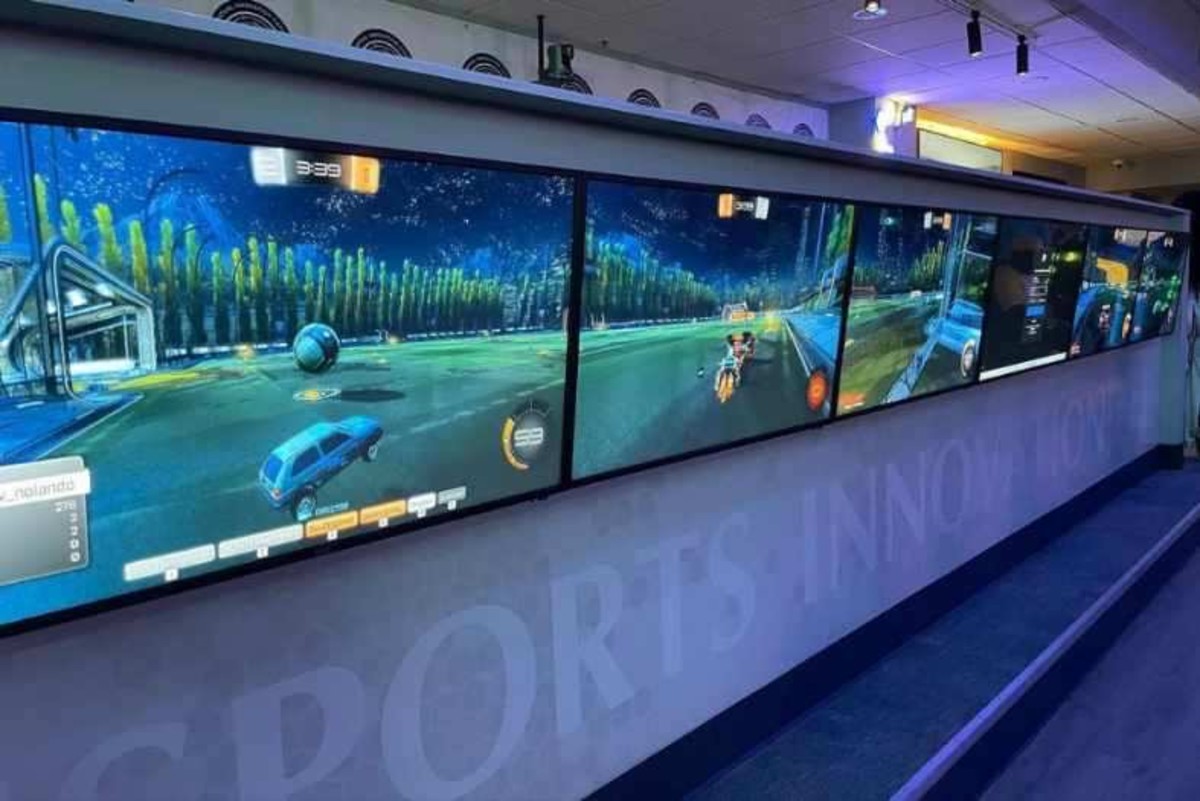
He said If not for the SU Esports program, he’d likely still be sitting alone in his room playing Rocket League. “It keeps you from feeling alone like you’re not fighting the world.”
Edwards on the other hand said he joined the esports ecosystem in a way that was more…culturally traditional.
“Playing Madden when I was 12 and seeing people play Madden 12 and Madden 13 and then seeing Madden 25 when they had the Madden bowl.”
The competition itself was one thing, but it was the cash prize pool that drew the young black boy’s attention.
At least now he had a halfway decent excuse to give his mom, who at the time was trying to push him away from gaming, about why he was spending so much time playing Madden.
Nearly a decade later, now a mechanical engineering student at Southern University, Edwards was still dead set on making his dream of becoming a competitive Madden player a reality.
The best way to do that was to show out in front of Coach Turner. The easiest way for him to do that was to compete in an on campus Madden tournament.
Edwards easily defeated five opponents in the tournament, winning some games by over 70 points.
‘Once he seen that, he was like hey man we got something, let's get rollin.”
It was in 2021 when Edwards, now officially a part of the SU Esports Team, swept the National HBCU Heroes Madden Tournament. He won $1500 in scholarship money and $500 straight up cash money.
An accomplishment that even made his mom say, “okay you might be able to do something with this.”
Edwards was able to parlay his Madden success into an opportunity to work for the software technology business Efuse, doing marketing and promotion work on campus.
“I was able to put some money in my pocket along with expanding my resume,” said Edwards.
He was then able to land a summer internship with Riot Studios, the developer of the major Esports title League of Legends and one of the hottest Esports titles Valorant.
Simply having the opportunity to walk around the Santa Monica based studio was an eye opening experience for Edwards.
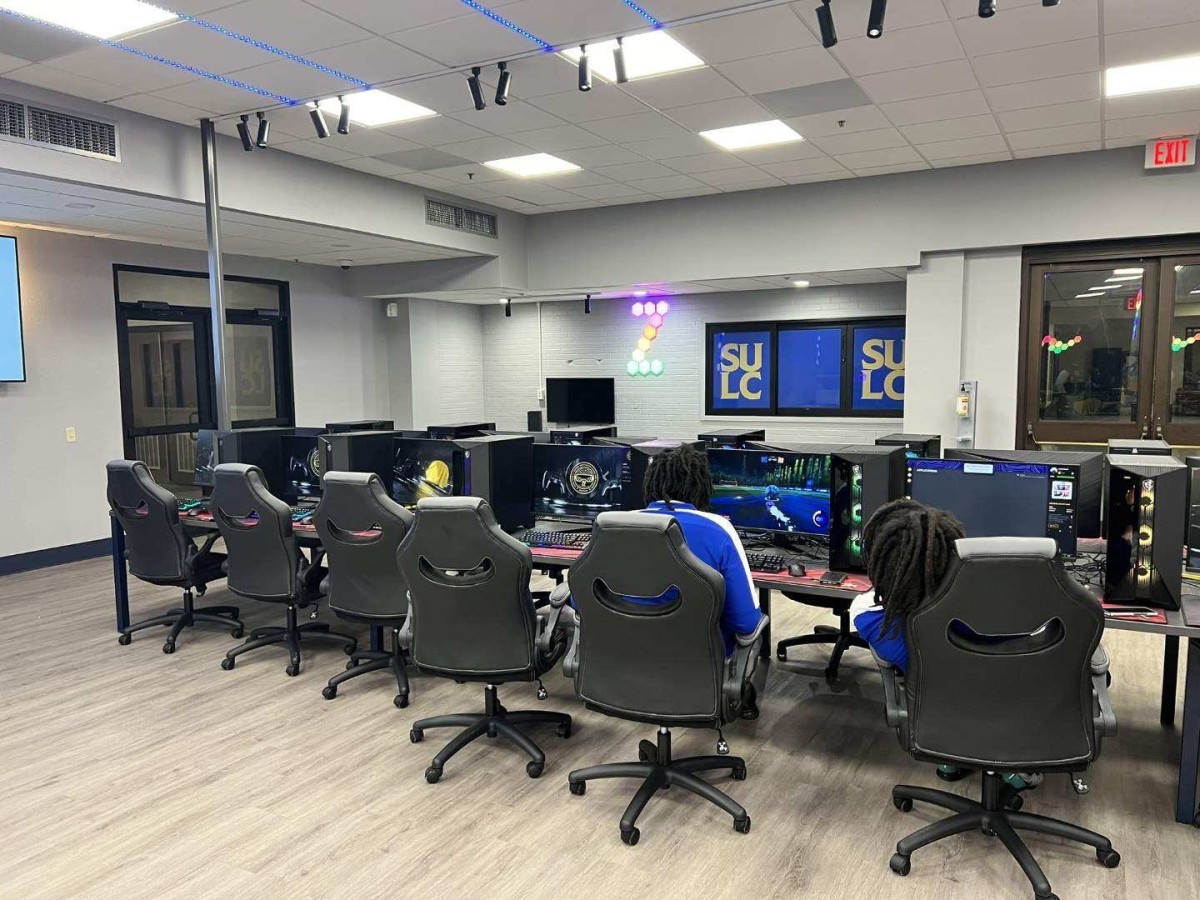
The 24 year old Tulsa native comes from a family that has primarily worked in the labor sector, a combination of steel mill and plant workers as well as some mechanics.
To him, this opportunity represented a compilation of all of the hard work that he had put in over the years. All of the right decisions that he’s made. Every step along the pathway that he took to meet one ultimate goal in life. Never having to work with his hands.
“They did not seem like they were having back problems from lifting anything,” he said with a grin.
What was once seen as a distraction is now being hailed as a viable pathway and pipeline for students, especially for African American students participating in gaming and Esports programs across the country
“It just shows how big the industry actually is and how far we can actually go if we put in effort along with being supported by the right people,” said Edwards.
It was the success of stories by both Johnson and Edwards along many other students on Southern’s campus that was the driving force behind the creation of the newly minted Mixed Reality Virtual Innovation Gaming and Esports Institute.
The physical location is in the UC on the SU’s main campus, but the instruction and degree program falls under the Southern University Law Center (SULC) overseen by Chancellor John Pierre.
SULC History
There’s no way that in 1946 Charles Hatfield III could have known his legacy would one day include Esports. Besides, the first known computer game, a chess engine named Turochamp, wouldn't be created for another 2 years.
After serving his country in WWII, Hatfield was denied acceptance into the Louisiana State Law School, the only school in the state with a law degree program.
Hatfield sued the then-segregated state of Louisiana with the legal representation of Thurgood Marshall who won the Murray versus Pearson case over a decade prior against Maryland University Law School.
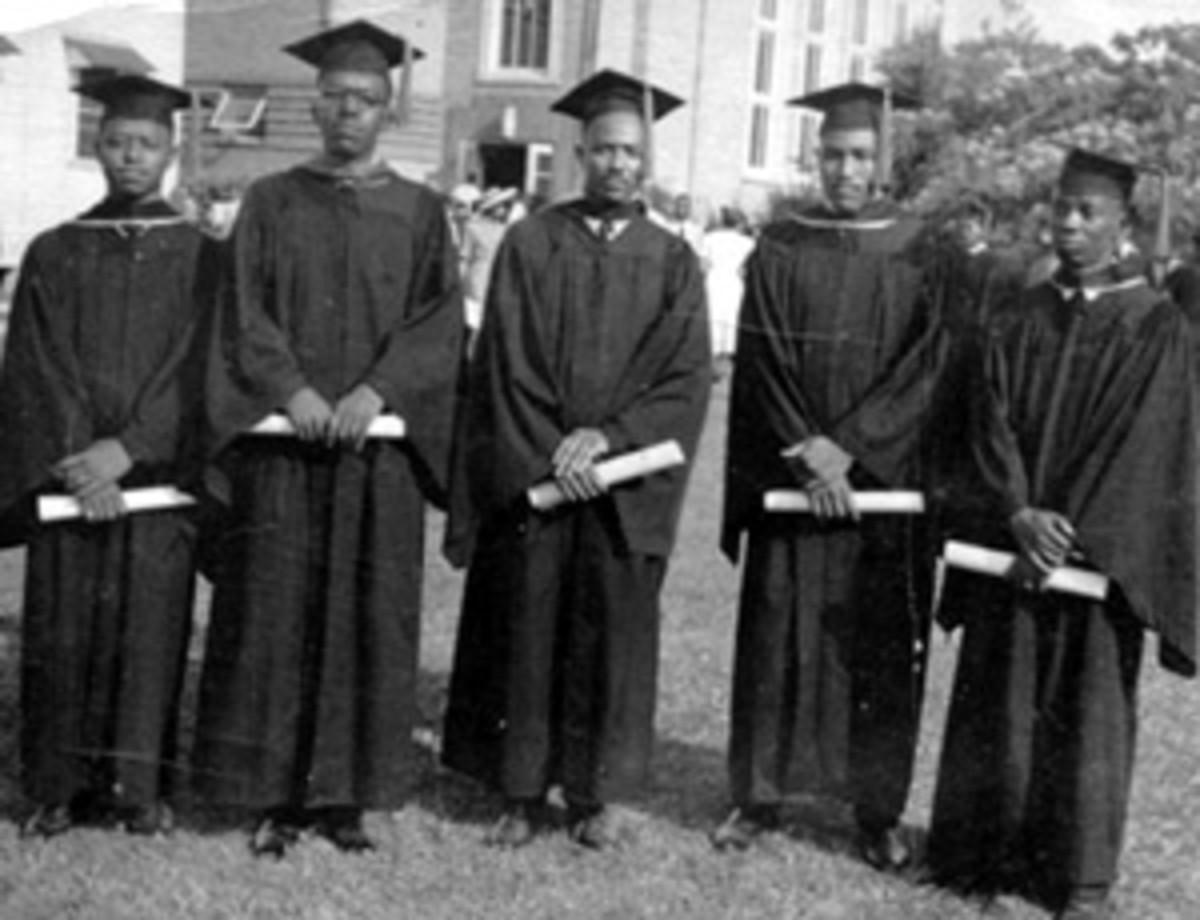
Marshall won the case against the university under the grounds of violating the Fourteenth Amendment’s guarantee of equal protection of the laws by denying an African American applicant admission to its law school solely on the basis of race.
Unlike the Murray v Pearson case, Hatfield lost in court, but in 1947 the state of Louisiana still appropriated $40,000 to build a new law school for Black students on the campus of Southern University.
According to Chancellor Pierre, Hatfield was a man who was concerned about creating access and opportunity, “he didn't believe in the restrictions placed upon him because of his color.”
The Chancellor believes this new SULC Esports program can accomplish the same goal set forth by Hatfield over 75 years ago.
The Future Is Now
Chancellor Pierre’s interest in the world of gaming and Esports was initially piqued seeing how much the local areas high schools had embraced Esports and gaming. In particular the work Turner was doing at Southern University Lab with middle and high school students.
After seeing what was happening with SU Lab ESports was more than hype, and also seeing that the Athletic department wasn’t touching it, the law school chancellor jumped at the opportunity to add a gaming based curriculum into SULC.
It was based off a simple realization.
“The bottom line was whether we like it or not, whether we understand it or not, the kids are gaming,” said Pierre.
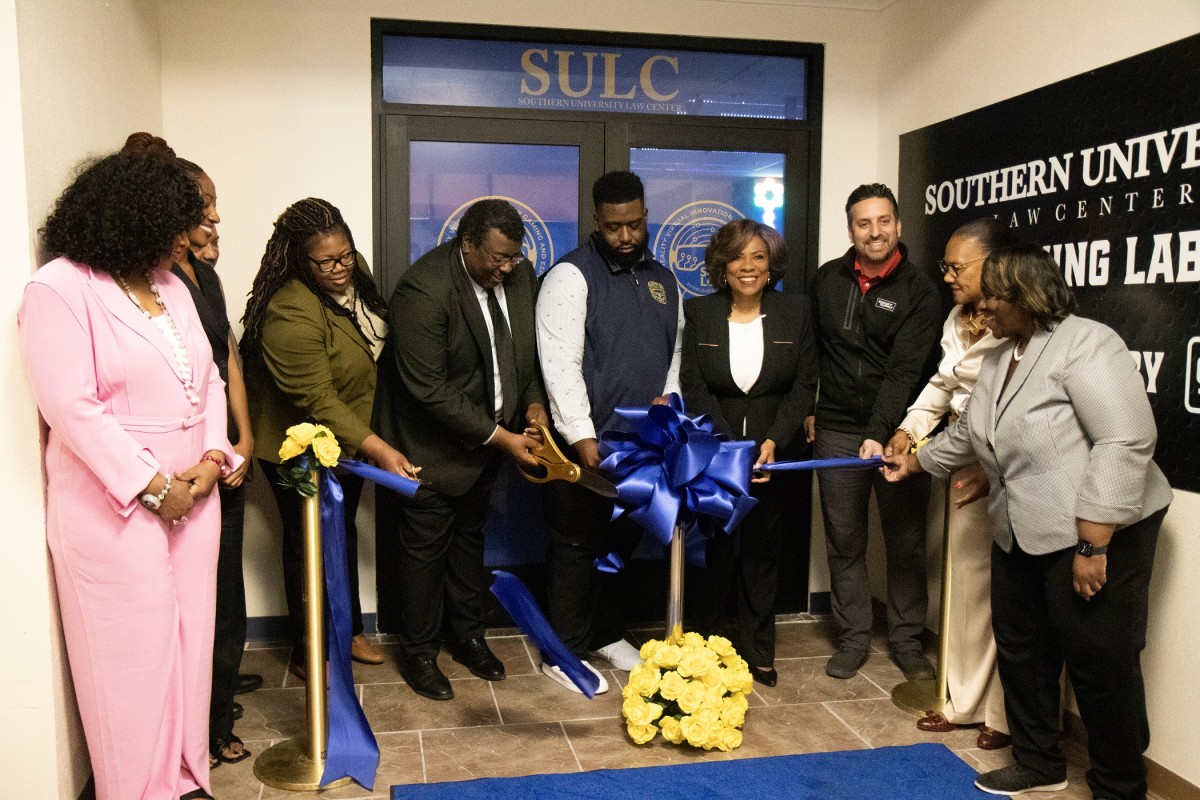
The creation of the $200,000 lab was as much of a necessity for the students as it is for the law program itself. Chancellor Pierre expects the Esports lab/law program will help SULC to steal students away from other larger HBCU law programs around the country.
The curriculum is based on the many ways lawyers can support the creative industry.
Everything from contracts to intellectual property rights or even a simple non-disclosure agreement are all reasons why someone who may be developing a game would need legal representation.
Once Pierre had himself convinced and a plan put together, the SULC Chancellor knew his first move had to be bringing in Marla Dickerson as Vice Chancellor to work alongside him to properly build the program.
According to Dickerson, when Chancellor Pierre came to her with the Esports opportunity, it didn’t take much convincing.
That’s because the last time he came to her with an opportunity, it was to be on the front lines of the schools cannabis research as SULC’s Director of Continuing Legal education. At the same time, Dickerson would be the managing fellow of SULC’s Cannabis Compliance Law Policy Institute.
She recounts when she was initially approached by Pierre for the director role in cannabis research, her first reaction was to tell her mother, “I think Chancellor has lost his mind, he wants me to do something with weed.”
But that would all change once she started to understand the concept of industry.
“We as Black people can maybe be myopic in our thinking,” she continues, “not realizing the vastness of what these up and coming industries are.”
On Friday, #SULC’s Mixed Reality Virtual Innovation Gaming and Esports Institute officially launched its #Esports Innovation Lab! The lab will not only serve @SouthernU_BR but surrounding communities. #WeAreSouthern pic.twitter.com/pHax8PKrlw
— SU Law Center (@SouthernULaw) March 13, 2023
More importantly their potential positive impact on young Black youth.
Currently Baton Rouge spends tens of millions of dollars more on policing than what is spent on youth services.
It’s unfortunate, but those who support increases in police spending can easily point to the growing national concern as it pertains to youth violence and crime.
Close to home, the week before the SULC Mixed Reality Virtual Innovation Gaming and Esports Institute held its ribbon cutting, there was a massive brawl at a nearby high school that led to a police officer being stabbed by a student.
Dickerson said she knows she’s fighting an uphill battle trying to save the lives and futures of local Baton Rouge youth.
This is because she's fighting against a much larger industry.
“There are some [places] in Louisiana where prisons are the largest employer,” she then asked rhetorically, “what’s the incentive to actually be able to give student outlets other than a pathway to prison?”
The Rule of Three
Both Pierre and Dickerson knew they had to recruit one other person they knew could help them see this vision to the finish line.
Turner was offered the opportunity to be elevated to the Coordinator of the law school’s program.
Of all the people who hesitated, it was him.
His initial reluctance was tied to the idea the name recognition of Southern University would carried more weight that that of SULC.
Turner believed that main school’s name recognition would help him attract the type of publicity he thought he needed to support the short and long term growth of the vision.
It took a couple conversations with the Chancellor Pierre and Vice Chancellor Dickenson for Turner to understand the larger industry play at hand they had in mind for the SULC program.
Great panel discussions are taking place at the 2023 #Esports Summit! #SULC pic.twitter.com/K3uTZO0lbe
— SU Law Center (@SouthernULaw) March 17, 2023
“Having a Chancellor and the Vice Chancellor like that on one accord, it's a full team effort. I couldn't ask for a better position to land.”
The often stoic, seemingly unapproachable Turner admitted he will likely break character and shed a tear when he sees Edwards and Johnson walk across the graduation stage.
“It’s been awesome to see them mature into young Black African American men.”
Edwards has seemingly found his lane in the vastly growing world of Esports. He’s already working on plans to give back to his alma mater.
“Let's host a movie night there once a month to really build something that people even if they don't want to play games, or be in the esports club, they can still enjoy it."
Whereas his SU Esports brethren, Roland Johnson, has decided that instead of going to another school, he wants to continue his collegiate esports career by applying to get into SULC’s Esports Law Program.
Just like the Chancellor planned.
